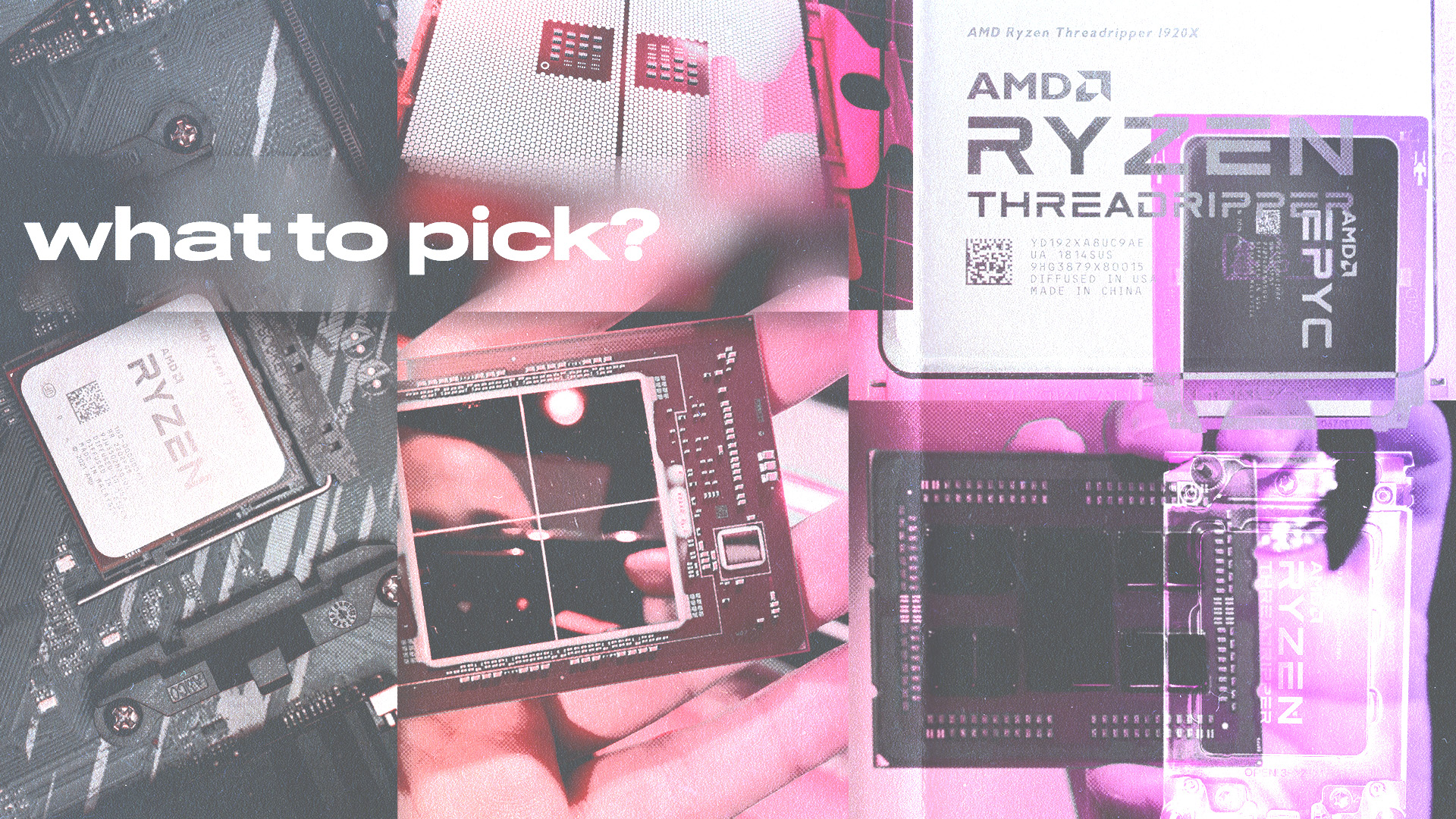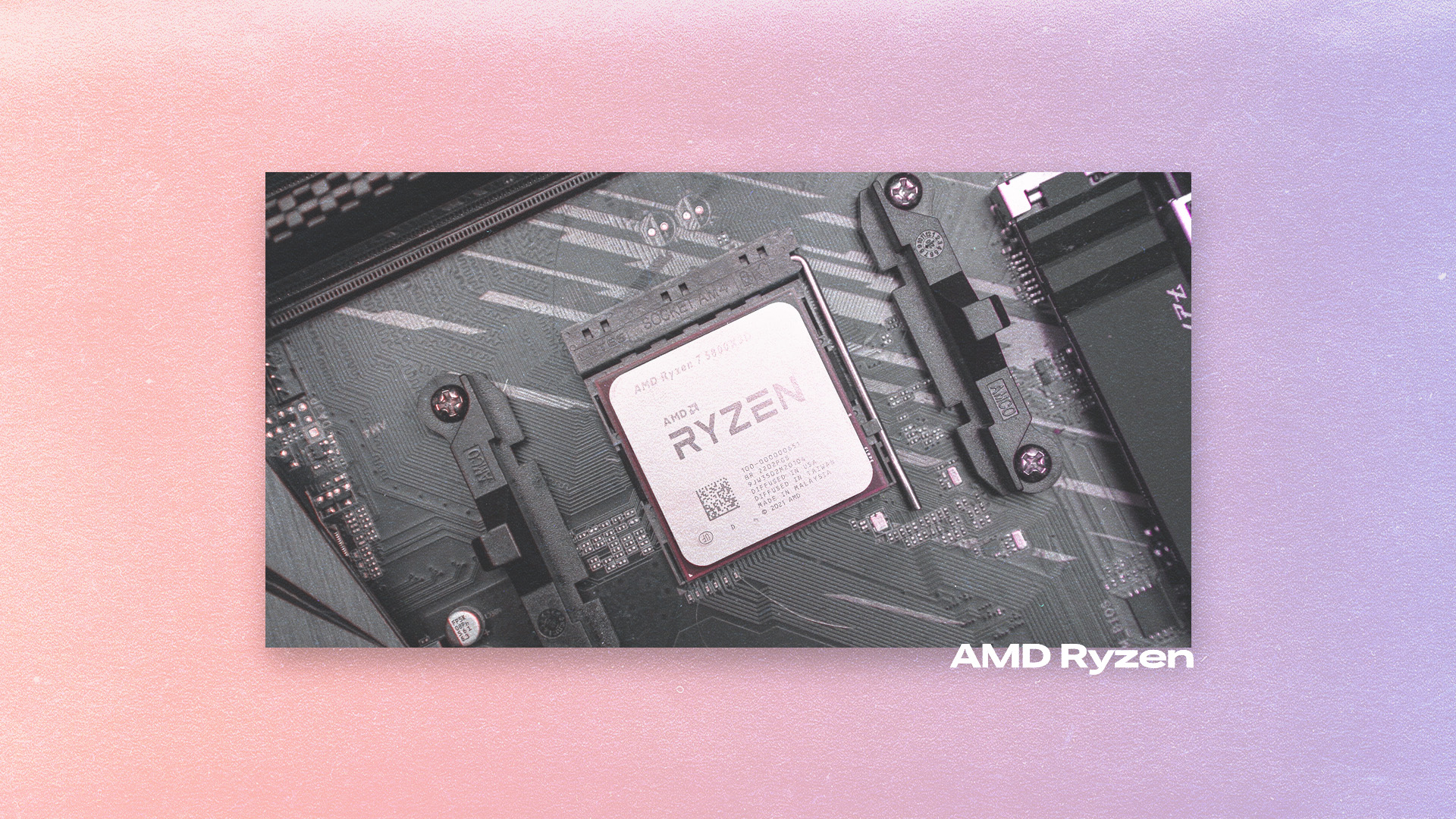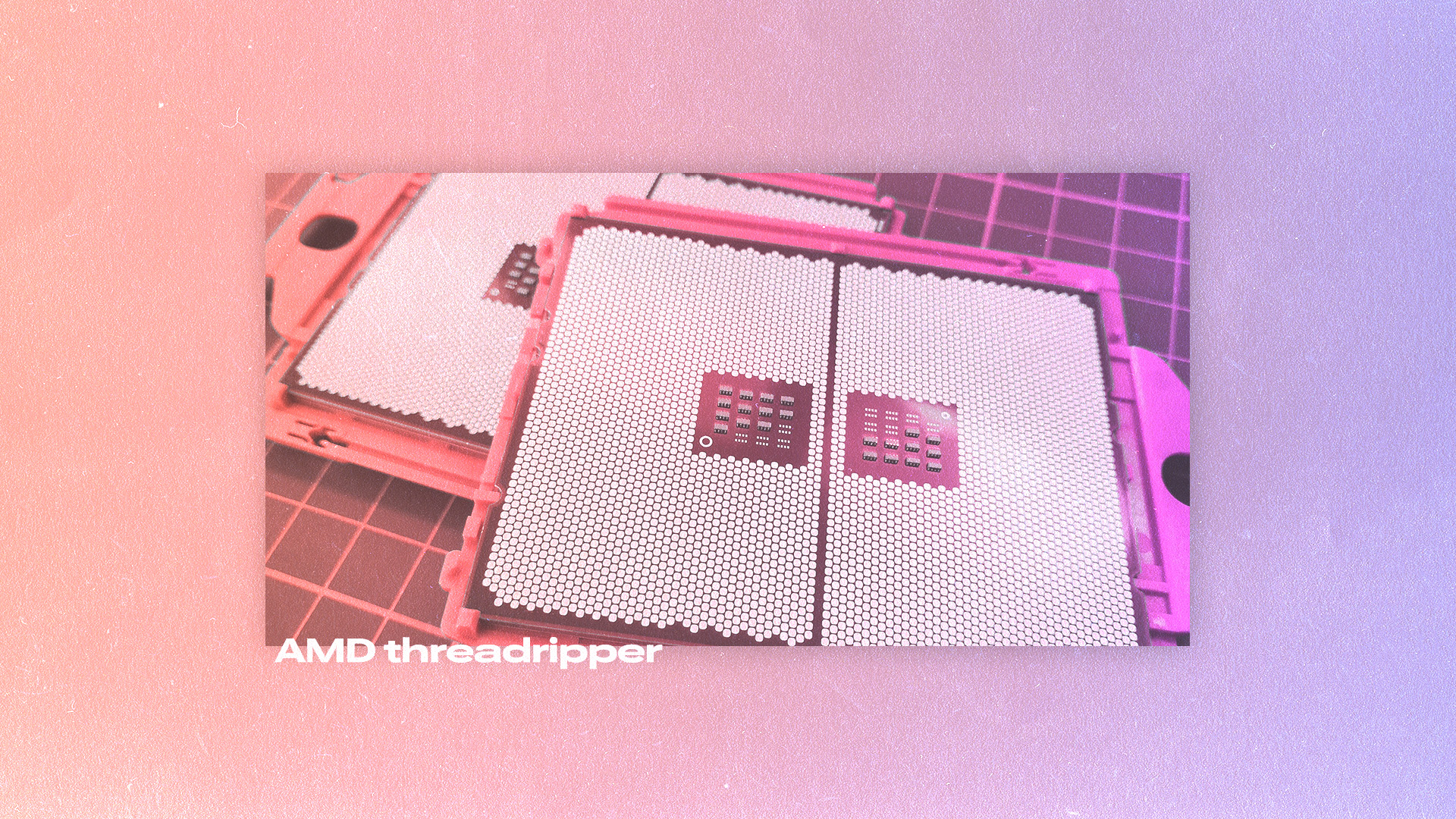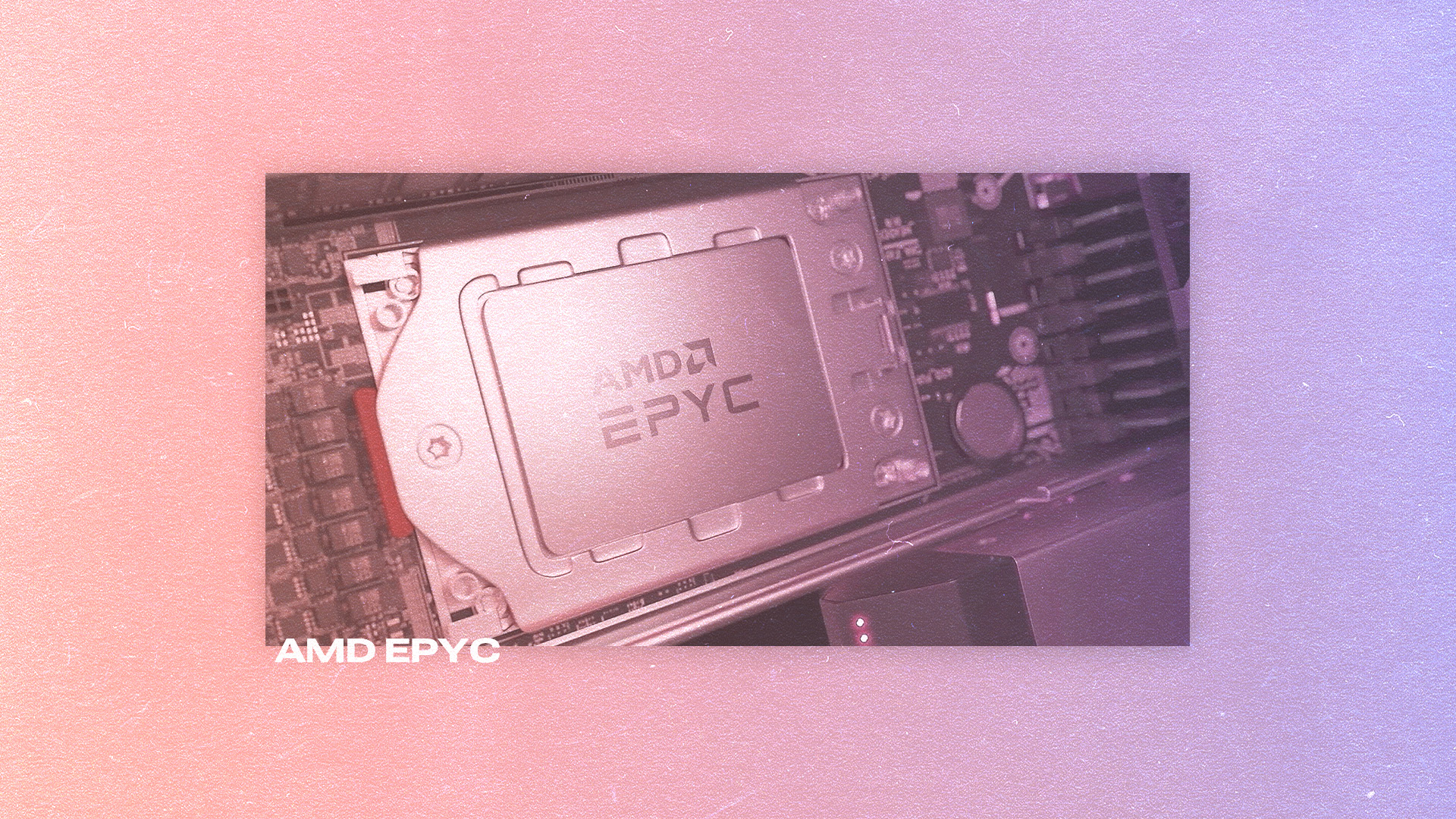
In previous posts, we’ve gone over the key advantages to AMD’s Ryzen platform, Threadripper PRO workstations, and AMD Epyc. Each product has a specific use case and unique customer that can best utilize its strengths. Now, let’s dive a little deeper into the world of Ryzen vs Threadripper vs Epyc, comparing each and go over the types of users they’re best suited for.

AMD Ryzen
- What it is – Ryzen is AMD’s main consumer processor for desktops and laptops. It’s available with up to 16 total processing cores.
- Who it’s for – Ryzen is ideal for higher demand home users, content creators, and gamers who have outgrown AMD’s entry level Athlon processors. Its combination of high core count and frequency puts it right in the sweet spot for most consumer-level users.
- Ryzen Pros – High core frequency translates well to gaming and frequency bound applications like CAD. Lots of flexibility and various chipset/platform options for customization. Much more affordable than workstation oriented chipsets.
- Ryzen Cons – Not designed for very highly threaded applications, no official ECC support, dual channel RAM can be limiting for some memory intensive use cases, 24 PCIe lanes chokes dual GPU solutions.

AMD Threadripper PRO
- What it is – Threadripper PRO is AMD’s professional workstation platform designed to meet the needs of high demand, highly threaded applications and pro level users
- Who it’s for – Users in need of 32+ processing cores or power users operating CPU intensive applications. TR PRO is targeted toward professional workstation users like CFD, VFX, and digital media creation/editing.
- Threadripper Pros – Up to 64 total cores, ECC RAM support, 128 PCIe lanes for multi-GPU support, very steep upgrade path
- Threadripper Cons – Uses older Zen 3 architecture, no DDR5 support, not scalable beyond single socket options, and can get expensive.

AMD Epyc
- What it is – Epyc is AMD’s server/enterprise solution. While most Epyc systems are rackmounted servers, there are a few workstation solutions available, like our ProMagix HD360A.
- Who it’s for – On the workstation side, Epyc processors are only for specialized, very highly threaded applications that are completely scalable such as CFD, Ansys, AI, Machine Learning, and scientific research
- Epyc Pros – Highly scalable up to 192 physical cores. 12 channel DDR5 RAM with theoretical support of up to 4TB
- Epyc Cons – No “official” Windows support (but we can do it), server boards offer very few features and limited I/O. Enterprise solution means an enterprise budget.
Ryzen vs Threadripper vs Epyc
How does this trio stack up head-to-head? Here’s a handy grid to break it down for you.
| Ryzen | Threadripper PRO | Epyc | |
| Flagship | 7950X | 5995WX | 9654 |
| Architecture | Zen 4 | Zen 3 | Zen 4 |
| Max cores | 16 | 64 | 96 |
| Max Frequency | 5.7GHz | 4.5GHz | 3.7GHz |
| Socket | AM5 | WRX80 | SP5 |
| Unlocked | Yes | Yes | No |
| Scalability | Single Socket | Single Socket | Dual Socket |
| DDR4/5 | DDR5 | DDR4 | DDR5 |
| TDP | 170W | 280W | 360W |
| ECC Support | No | Yes | Yes |
| RAM Channels | 2 | 8 | 12 |
| PCIe Lanes | 24 | 128 | 128 |
| Windows Support | Yes | Yes | No** |
Conclusion
So comparing Ryzen vs Threadripper vs Epyc, which is the right choice for you? The answer really depends on exactly what tasks and applications for which your workstation is used. For most applications, Ryzen is the most efficient and cost effective option but certain specialized power users will see enormous benefits from a multi-core solution like Threadripper or even Epyc. For assistance with your build, explore our Workstation PC page, or give one of our experts a call at 804-419-0900.
Josh Covington
Latest posts by Josh Covington (see all)
- Shopping for a Linux PC? Introducing our new line - April 18, 2024
- Core Ultra vs. Core i9 Processors - April 9, 2024
- FP64 vs FP32 vs FP16 and Multi-Precision: Understanding Precision in Computing - February 2, 2024